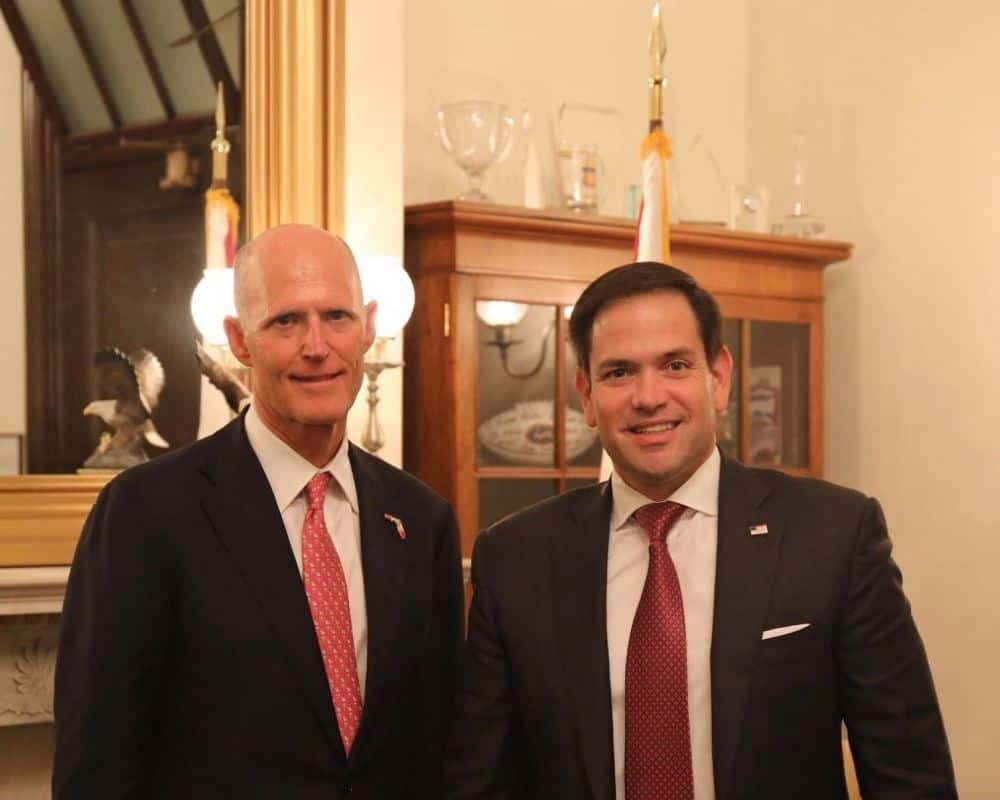Florida’s two U.S. senators–Republicans Marco Rubio and Rick Scott–are championing a proposal to “prohibit bulk-power equipment that is owned by, operated or associated with a foreign adversary from providing power to our nation’s defense critical electric infrastructure.”
At the end of last month, Scott introduced the “American Power Infrastructure Act” with Rubio and U.S. Sens. Tom Cotton, R-Ark., and Roger Marshall, R-Kansas, as co-sponsors.
On Thursday, Scott showcased the bill, with his office noting that in 2020 “President Trump issued an executive order to reduce the risks that entities associated with Communist China pose to the nation’s bulk-power system” and the bill “codifies important components of President Trump’s executive order after President Biden revoked it earlier this year.”
Scott and Rubio weighed in on the bill on Thursday.
“The Biden administration has shown it is willing to use taxpayer dollars to purchase critical energy equipment from foreign adversaries, like Communist China. That’s insane. We can’t do business with nations that are actively trying to disrupt our power grids, upend our everyday life and hurt Americans. We must keep our energy infrastructure safe and secure. My Protect American Power Infrastructure Act will ensure that our most critical and sensitive infrastructure is protected from our adversaries, and I hope the Senate passes this bill quickly,” Scott said.
“In recent years, America’s strategic competitors have repeatedly infiltrated and attacked our nation’s critical infrastructure. Recent attacks on our nation’s energy supply chains, such as on the Colonial pipeline, demonstrate the urgency with which we must take decisive action to limit vulnerabilities to key infrastructure like our energy grid. The Protect American Power Infrastructure Act would implement key provisions of President Trump’s Executive Order on Securing the United States Bulk-Power System, which the Biden administration has unwisely failed to implement. This bill is an important step toward removing vulnerabilities in our energy infrastructure that foreign adversaries could exploit to harm our nation,” Rubio said.
The bill would “prohibit suppliers of power to American defense critical electric infrastructure from using equipment owned, controlled, operated or influenced by, or otherwise connected to, a foreign adversary” and give the U.S. Energy Department “the authority to pre-approve energy vendors and equipment which are deemed secure.”
Scott’s proposal was sent to the U.S. Senate Energy and Natural Resources Committee last month. So far, there is no companion measure over in the U.S. House.
Reach Kevin Derby at kevin.derby@floridadaily.com.




















